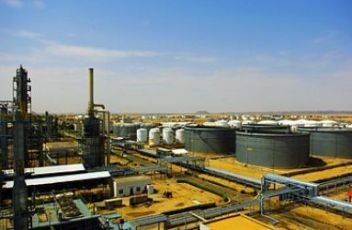Juba urges Sudanese rival leaders to safeguard uninterrupted oil flow
June 22, 2023 (JUBA) – South Sudan has called upon rival leaders in Sudan to ensure the continuous flow of oil to the global market, emphasizing its economic significance for both countries.
During a parliamentary session on Tuesday, South Sudan’s Minister of Finance and Economic Planning addressed legislators, stating that oil continues to flow through the Republic of Sudan.
The minister stressed that all parties and leaders in Sudan are responsible for guaranteeing and protecting the uninterrupted flow of oil. He remarked, “There have been talks and reports of threats and ultimatums. I prefer not to delve into this, as the government possesses mechanisms to verify and address such issues without causing alarm. The continuity of oil flowing through Sudan benefits all stakeholders because oil is not solely the resource of the people of South Sudan. Therefore, Sudan, along with all parties and leaders, has an obligation to protect it,” said Dier Tong Ngor, Minister of Finance and Economic Planning.
He made these statements to the media after presenting the 2023/2024 budget to the parliament on June 20, 2023. Ngor emphasized that the budget was prepared with the assumption of oil flowing through Sudan as the primary revenue source.
Former South Sudanese Minister of Oil, Ezekiel Lol Gatkuoth, also appealed to Sudanese leaders, General Abdel Fattah Al-Burhan, Chairman of the Sovereign Council of the Republic of Sudan, and General Mohamed Hamdan Daglo, Leader of the Rapid Support Forces, urging them to guarantee and protect the uninterrupted flow of oil.
Gatkuoth’s public appeal, emphasized that the shutdown of oil would be detrimental not only to Sudan and South Sudan but also to international stakeholders, including China, India, Malaysia, and Australia.
“This oil is our shared resource, benefitting both South Sudanese and Sudanese alike. If this resource is shut down, it will not only be a loss for South Sudan and Sudan but also for our international oil partners, such as China’s CNPC, Malaysia’s PETRONAS, and India’s ONGC. Some might question why we haven’t built an alternative pipeline to South Sudan. The answer is that our pipeline would also traverse Kenya, Ethiopia, and Djibouti, requiring us to manage relationships there,” explained Gatkuoth.
He further elaborated on the benefits Sudan receives from South Sudan’s oil, highlighting the financial gains.
“With the $25 fee per barrel going to Sudan, multiplied by 170,000 barrels per day and per month, Sudan receives approximately $127 million USD per month. Additionally, the 28,000 barrels per day refined at Khartoum Refinery at Al-jaili, along with the petroleum products consumed and used by Sudan, contribute to its economy,” Gatkuoth stated.
South Sudan receives the standard price for its crude oil barrels, producing roughly 840,000 barrels per month, equivalent to approximately $65 million USD. The Central Processing Facility at Al-Jabalain and Heglig processing facility, operated by Sudanese personnel, generate income.
“Furthermore, the Sudanese workforce involved in the marine terminal at Port Sudan, where oil is shipped to international markets, including truck drivers, storage facility workers, and logistical operators, earns a livelihood. By simple mathematics, one can understand Sudan’s profits from these operations. In light of these gains, leaders Gen. Burhan and Gen. Hemetti must protect the pipelines and facilities at all costs,” he added.
Gatkuoth, a senior member of the ruling Sudan People’s Liberation Movement under President Salva Kiir and a close ally of Vice President Taban Deng Gai for infrastructure development, suggested that President.

